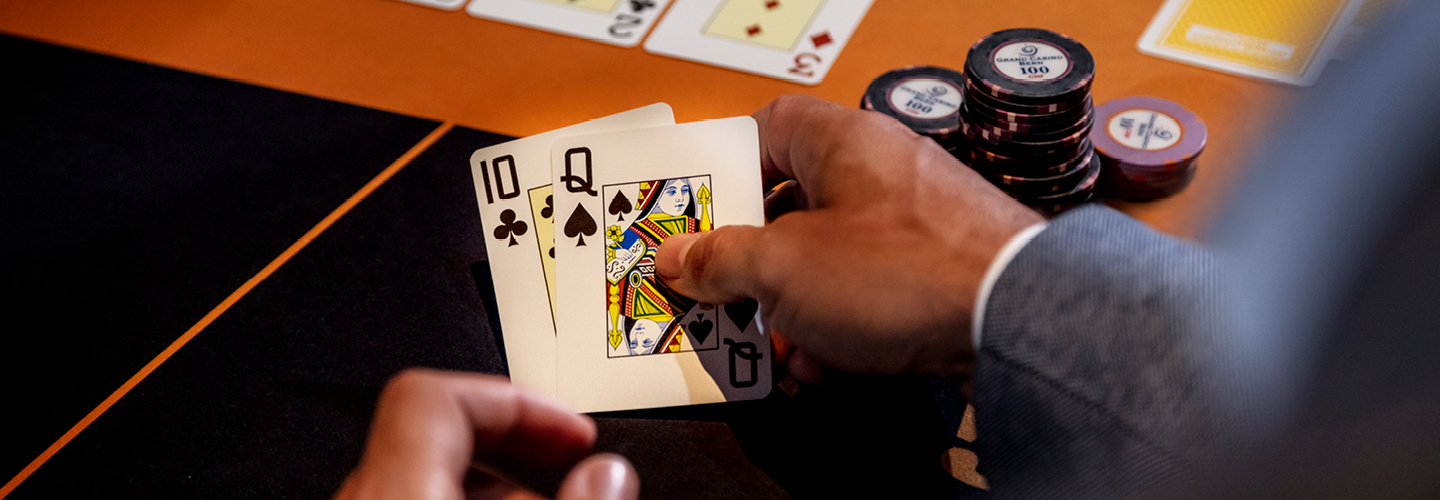Games
Poker
The game of poker has a long history.
At the Grand Casino Bern you can try the world’s most popular card game or take part in our poker series. The most widely played versions are Texas Hold ’Em and Omaha. Every game with five open board cards in the middle of the table that can be used by each player to compose their poker hand and in which a player can never use more than their two hole cards is called a Texas Hold ’Em game.
Below, you will find the poker guidelines at the Grand Casino Bern as applied in our house rules.
General
Guests are not permitted to show other guests their cards, even if those persons are no longer playing. Players cannot have another player or the croupier act for them. A player who leaves the table without comment is assumed to have folded their cards when their turn comes. All players must wait for their turn. All cards of a player must be visible at all times. Where possible, only German should be spoken at the table. Depending on the situation, a warning will be issued for violations of these rules. When the third warning is issued, the guest must leave the poker table. All cases not mentioned above will be determined by the gaming shift manager in accordance with the applicable processes of the Grand Casino Kursaal Bern AG. Any such decisions are final.
Placing stakes
A player’s announcements are binding. For example, if a player announces a raise, they must pay the amount as announced. If they only say the word “Raise!”, they must pay at least a minimum raise, regardless of the situation.
If an action is carried out outside of a turn (i.e. too early), it will be deemed binding insofar as the stake(s) placed by the missed-out player(s) is/are not higher than the stake declared too early. If a stake is placed that exceeds that which was placed too early, then the player may withdraw their stake that was placed too early and rethink their action.
If a player calls with an insufficient stake (i.e. without announcing such) as a result of not noticing a raise, they may withdraw their stake as long as no following player has called the raised stake. Otherwise, the player must meet the raised stake (i.e. raising again is not permitted) or surrender all claims to their stake and the pot.
Single chip (unannounced)
1. If stakes by other players have already been placed before him or her, this is regarded as a call.
2. If no stakes were placed by other players before him or her, this is regarded as a bet.
3. If a stake has been placed before the player, the entire sum is regarded as a raise, unless another player has already raised. Then this is regarded as a call.
Straddle
A straddle is a player bet following the big blind (under the gun), made without looking at the dealt cards. This bet is double the value of the big blind. A straddle entitles the player to act last before the flop. A straddle must be placed before the cards are dealt.
Missed blind
A missed blind button is issued for each missed blind. When such a button is issued for the third time, the place at the table must be vacated.
If, for any reason, one or both blinds are missed, the player has two options:
● If the player has missed both blinds, they must pay both blinds, with the big blind remaining as the bet and the small blind (dead blind) going to the pot.
● If the player has just missed the small blind, they must pay the small blind (dead blind) upon resuming play. The player cannot resume play until they are in the big blind position again.
If, as a result of changing places, a player moves more than three places (occupied by active players) clockwise from the button, both blinds must be paid, with the big blind remaining as the bet and the small blind going to the pot. Alternatively, the player can wait until the big blind position comes round again. Blinds cannot be paid on behalf of absent players.
All-in
Having gone all-in, a player can buy into the game once with less than the table stake. Upon going all-in a second time, the player is out of the game. In this case, no capital can be added between games. In the event of a waiting list, a player wishing to continue playing is placed at the end of it. When a place at the table becomes available, the player is free to take it but must buy in to the full amount.
If a player goes to collect new capital after going all-in and has not missed any blind before returning, they will be issued new cards again immediately. When a missed blind button is issued for the third time, the place at the table must be vacated.
Showdown
If a player folds as a result of false information and the cards are retrievable,
the hole cards are to be returned to the player. Neither the dealer nor the players are allowed to look at undealt or folded cards, even after a game has finished.
A player who accidentally or deliberately reveals one or both hole cards too early may play on without limitation. After the hand in question has been shown to the table at the request of all players, the player may continue playing the hand as concealed. A warning is issued after the game.
If the player pushes (discards) one card face up and one face down over the line, this is regarded as a fold. Both
cards must be shown.
Place reservations
Only guests that personally apply to the table supervisor or above are placed on the current waiting list. Applications by telephone are not accepted. Guests that no longer wish to play are kindly asked to deregister.
Must-move rule
If the main table (i.e. table 1) is full and there are enough players, the must-move rule is applied to open the second poker table: As long as there are more than eight players on table 2, the main table must have the maximum amount of players. If there are eight or less players on table 2, one player from this table must switch if the number of players at the main table is less than eight. If this is the case, the player will be asked to change tables in accordance with the waiting list. If the guest refuses to switch from table 2 to the main table, they will be asked to stop play for the day. No players from the main table can switch directly to table 2. If a player leaves the main table, they must wait 60 minutes until they can sit at table 2. The guest switching to the main table must take their table stake with them (i.e. whatever they have in front of them). This will be done by a member of staff. The guest does not need to pay a blind to join, with the exception of a small blind and the button position. They can start to play immediately.
Table etiquette
Only table stakes and good-luck charms may be placed on the tables. Electronic devices may not be used during a hand. Guests are free to wear earphones or headphones. Sunglasses and headwear are not permitted.
These two variations on poker are the most popular Hold ’Em versions. A deck of 52 cards is used to play. Texas Hold ’Em can be played by a minimum of two and a maximum of nine players at one table. Likewise, Omaha requires a minimum of two and a maximum of nine players. Initially, each participant receives two or four concealed cards.
How to win the pot
The winner is whoever has the best hand during the showdown (i.e. the best possible hand with five cards) or whoever managed to get the other players to fold all of their cards before the showdown, using sheer skill.
How the game works
Texas Hold ’Em and Omaha can be played by a minimum of two and a maximum of nine players at one table. Initially, each participant receives two concealed cards. The player left of the blind goes first; the other players can then call, raise or fold. In the second round, the first three cards are placed face up on the table (flop). The player to the left of the nominal dealer then goes first. In the third round, a fourth card (turn card) is placed face up in the middle of the table, followed by another round of betting. Now a fifth card (river card) is placed face up; this is followed by the last round of betting and the showdown. Each combination of two concealed cards and the five cards facing upwards can be used to form the best possible hand (five cards). The croupier then pushes the pot to the winner, and a new game can begin.
Differences with Omaha
With Omaha, each player receives four concealed cards at the start. During the showdown at the end of the game, two of the four cards from the hand and three cards from the board must be used to form the best possible hand (five cards).
Special expressions
Ante
An amount staked by all the players in order to allow them to take part in the game.
Bet
The amount the player wishes to stake.
Board
The board refers to the cards lying face up on the table. These can be used by all players to form their poker hand.
Buy-in
The amount that every player has to place on the table before their first game in order to be allowed to participate.
Call
Placing a bet equal to the previous bet placed by the other player(s).
Check
Passing, i.e. staying in the game without placing a bet.
Community cards
Community cards that apply to the poker hands of all players.
Dealer button
Round marking button that indicates the position of the nominal dealer.
Blind
A mandatory bet in Texas Hold ’Em and Omaha which must be placed only by players in certain positions before the cards are dealt (number and amount depend on limit).
Fold
Passing; forgoing your right to win (i.e. discarding your cards).
Hand
The term “hand” has multiple meanings:
● It may be used to refer to the five best cards used to form the winning hand.
● It may also refer to all the cards that a player is dealt to form their winning hand.
Hole cards
Hole cards are cards that are dealt face down (concealed).
Limit
The type of limit (i.e. split limit, pot limit, no limit) defines how high the respective bets may be.
Pot
Total of all bets made during a game.
Raise
Increasing the size of an existing bet made in the round.
Showdown
After the last betting round all remaining players show their cards.
Table stake
Starting capital that a player must bring to the table in order to be able to participate in the game. As long as the guest is taking part in the game, nothing may be taken from the table stake. The guest may not add money to the game during a round.





